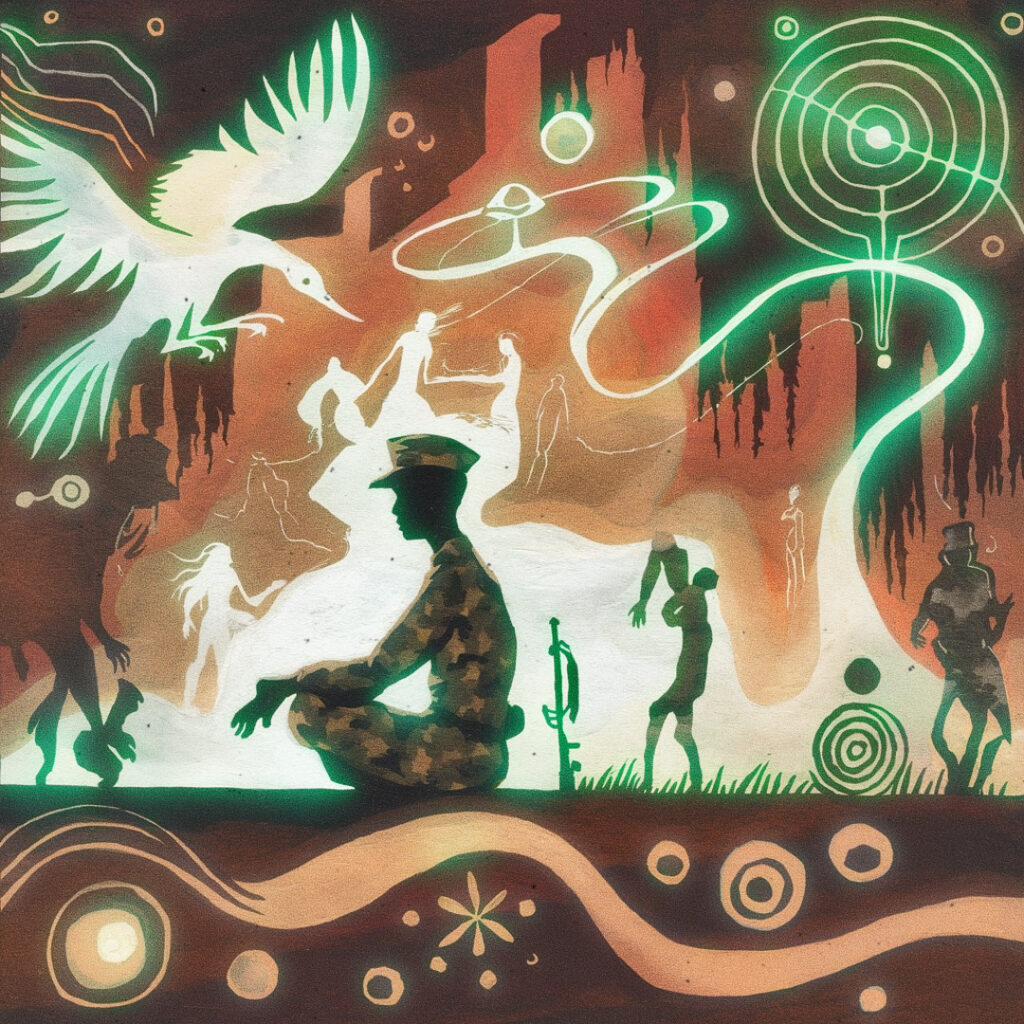MDMA-assisted therapy offers transformative hope for veterans battling PTSD and alcohol use disorder.
For veterans grappling with the intertwined struggles of post-traumatic stress disorder (PTSD) and alcohol use disorder, traditional therapies often fall short. Enter MDMA-assisted therapy, a promising but controversial approach at the crossroads of mental health innovation and psychedelic science.
No longer is this exploration is merely theoretical. With the stakes high for veteran health and well-being, new findings are paving the way for broader applications in mental health treatment, reshaping how society addresses deeply entrenched trauma.
Historical Context of MDMA and Psychedelic Therapy
First synthesized in the 20th century, MDMA was initially a tool for therapeutic introspection. Therapists lauded its capacity to facilitate emotional openness and connection, marking it as a promising adjunct to psychotherapy. However, by the 1980s, its recreational use led to a swift criminalization, stalling its therapeutic potential.
The 21st century has ushered in a renaissance of psychedelic research. Institutions and researchers worldwide are reigniting interest in substances like MDMA, backed by rigorous clinical trials and mounting evidence of their therapeutic value.
Current Research and Studies
The Veterans Affairs (VA) system, in collaboration with Brown University and Yale University, is spearheading groundbreaking research into MDMA-assisted therapy. This federally funded study seeks to assess its efficacy in treating PTSD and alcohol use disorder among veterans.
The research employs pharmaceutical-grade MDMA alongside placebo controls. Participants undergo a structured protocol combining MDMA administration with psychotherapy sessions, ensuring a controlled and ethical approach to treatment.
Initial results are promising. Participants report a marked reduction in PTSD symptoms and decreased reliance on alcohol as a coping mechanism. Feedback highlights enhanced emotional clarity and a newfound ability to confront trauma.
Mechanisms of MDMA-Assisted Therapy
MDMA influences the brain by increasing serotonin, dopamine, and oxytocin levels, fostering feelings of trust and emotional connection. Unlike other psychedelics, it mitigates fear-based responses, creating a safe psychological space for therapy.
The substance’s unique properties facilitate deep emotional introspection, enabling patients to confront and process trauma. By reducing fear and promoting trust, MDMA creates an environment conducive to healing.
MDMA is not a standalone treatment. Its true power lies in synergy with psychotherapy, where techniques like cognitive-behavioral therapy and guided emotional processing maximize therapeutic outcomes.
Benefits and Challenges
Potential Benefits
MDMA-assisted therapy offers profound benefits, including significant PTSD symptom relief, reduced alcohol dependency, and enhanced emotional resilience. By addressing the root causes of trauma, it empowers veterans to reclaim their lives.
Challenges and Risks
However, the approach is not without risks. Potential side effects, such as increased blood pressure and emotional vulnerability, warrant careful monitoring. Ethical and legal considerations, alongside societal stigma, pose additional hurdles to widespread acceptance.
Broader Implications
Impact on Veteran Health Care
Integrating MDMA-assisted therapy into the VA system could revolutionize treatment protocols, offering veterans a lifeline beyond conventional methods. The approach promises not just symptom management but holistic healing.
Implications for Mental Health Treatment
Beyond veterans, MDMA’s potential extends to other mental health conditions, including anxiety and depression. Its success could catalyze policy changes and unlock funding for further psychedelic research.
Future Research Directions
The journey is far from over. Future studies must refine treatment protocols, explore long-term effects, and address ethical concerns. Continued investment in this field is essential for unlocking its full potential.\
A New Hope for Veteran Mental Health
MDMA-assisted therapy represents a bold step toward reimagining mental health care for veterans. While challenges remain, the potential benefits for those suffering from PTSD and alcohol use disorder are undeniable. As research advances, hope grows for a future where evidence-based, transformative treatments redefine mental health care. For veterans and countless others, MDMA-assisted therapy could be the key to healing wounds that traditional methods have long failed to mend.

***
Trap Culture is the ultimate destination for cannabis enthusiasts who want to experience the best of Arizona’s cannabis culture. Whether you are looking for the hottest cannabis-friendly events, the latest news on cannabis legalization, trends in the industry and exclusive, limited-edition products from the top brands in the market, Trap Culture has you covered. Visit our website to learn more about our events, our blog, and our store. Follow us on social media to stay updated on the latest news and promotions. Join the Trap Culture family and experience the most immersive and engaging social cannabis events in Arizona.
Follow us on social media




